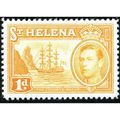Greetings - Amike.. 'Friend' - Esperanto postcard c.1960s
- Condition : Used
- Dispatch : 2 Days
- Brand : None
- ID# : 204478742
- Quantity : 1 item
- Views : 68
- Location : United Kingdom

- Seller : justthebook (+1704)
- Barcode : None
- Start : Mon 13 Sep 2021 16:27:37 (BST)
- Close : Run Until Sold
- Remain : Run Until Sold
More Listings from This Seller view all
Seller's Description
- Postcard
- Picture / Image: "Amike.." [Friend in Esperanto]
- Publisher: Esperanto Editions, Hastings, England
- Postally used: no
- Stamp: n/a
- Postmark(s): n/a
- Sent to: n/a
- Notes / condition:
Please ask if you need any other information and I will do the best I can to answer.
Image may be low res for illustrative purposes - if you need a higher definition image then please contact me and I may be able to send one. No cards have been trimmed (unless stated).
------------------------------------------------
Postage & Packing:
Postage and packing charge should be showing for your location (contact if not sure).
No additional charges for more than one postcard. You can buy as many postcards from me as you like and you will just pay the fee above once. Please wait for combined invoice. (If buying postcards with other things such as books, please contact or wait for invoice before paying).
Payment Methods:
UK - PayPal, Cheque (from UK bank) or postal order
Outside UK: PayPal ONLY (unless otherwise stated) please. NO non-UK currency checks or money orders (sorry).
NOTE: All postcards are sent in brand new stiffened envelopes which I have bought for the task. These are specially made to protect postcards and you may be able to re-use them. In addition there are other costs to sending so the above charge is not just for the stamp!
I will give a full refund if you are not fully satisfied with the postcard.
----------------------------------------------
Text from the free encyclopedia WIKIPEDIA may appear below to give a little background information (internal links may not work) :
*************
Esperanto (/ˌɛspəˈrɑːntoʊ, -ˈræn-/)[8][9] is the most widely spoken constructed international auxiliary language. It was created by L. L. Zamenhof in 1887, when he published a book detailing the language, Unua Libro ("First Book"), under the pseudonym "Dr. Esperanto". The word esperanto translates into English as "one who hopes".[10]
Zamenhof's goal was to create an easy and flexible language that would serve as a universal second language to foster world peace and international understanding, and to build a community of speakers, as he believed that one could not have a language without such a community.[11]
His original title for the language was simply "the international language" (lingvo internacia), but early speakers grew fond of the name Esperanto and began to use it as the name for the language just two years after its creation; the name quickly gained prominence and has been used as an official name ever since.[12]
In 1905, Zamenhof published Fundamento de Esperanto as a definitive guide to the language. Later that year, he organized the first World Esperanto Congress, an ongoing annual conference, in Boulogne-sur-Mer, France. The first congress ratified the Declaration of Boulogne, which established several foundational premises for the Esperanto movement; one of its pronouncements is that Fundamento de Esperanto is the only obligatory authority over the language; another is that the Esperanto movement is exclusively a linguistic movement and that no further meaning can ever be ascribed to it. Zamenhof also proposed to the first congress that an independent body of linguistic scholars should steward the future evolution of Esperanto, foreshadowing the founding of the Akademio de Esperanto (in part modeled after the Académie française), which was established soon thereafter. Since 1905, the congress has been held in a different country every year, with the exceptions of those years during the World Wars. In 1908, a group of young Esperanto speakers led by the Swiss Hector Hodler established the Universal Esperanto Association in order to provide a central organization for the global Esperanto community.
Esperanto grew throughout the 20th century, both as a language and as a linguistic community. Despite speakers facing persecution in regimes such as Nazi Germany and the Soviet Union under Stalin,[13] Esperanto speakers continued to establish organizations and publish periodicals tailored to specific regions and interests. In 1954, the United Nations granted official support to Esperanto as an international auxiliary language in the Montevideo Resolution.[14] Several writers have contributed to the growing body of Esperanto literature, including William Auld, who received the first nomination for the Nobel Prize in Literature for a literary work in Esperanto in 1999, followed by two more, in 2004 and 2006. Those writing in Esperanto are also officially represented in PEN International, the worldwide writers association, through Esperanto PEN Centro.[15]
The development of Esperanto has continued unabated into the 21st century. The advent of the Internet has had a significant impact on the language, as learning it has become increasingly accessible on platforms such as Duolingo, and as speakers have increasingly networked on platforms such as Amikumu.[16] With approximately two million speakers, a small portion of whom are even native speakers,[5] it is the most widely spoken constructed language in the world.[17] Although no country has adopted Esperanto officially, Esperantujo is the name given to the collection of places where it is spoken, and the language is widely employed in world travel, correspondence, cultural exchange, conventions, literature, language instruction, television, and radio.[18] Some people have chosen to learn Esperanto for its purported help in third language acquisition, like Latin.
While many of its advocates continue to hope for the day that Esperanto becomes officially recognized as the international auxiliary language, an increasing number have stopped focusing on this goal and instead view the Esperanto community as a "stateless diasporic linguistic minority" based on freedom of association, with a culture worthy of preservation, based solely on its own merit.
Listing Information
| Listing Type | Gallery Listing |
| Listing ID# | 204478742 |
| Start Time | Mon 13 Sep 2021 16:27:37 (BST) |
| Close Time | Run Until Sold |
| Starting Bid | Fixed Price (no bidding) |
| Item Condition | Used |
| Bids | 0 |
| Views | 68 |
| Dispatch Time | 2 Days |
| Quantity | 1 |
| Location | United Kingdom |
| Auto Extend | No |



 for 1 item(s)
for 1 item(s)

















